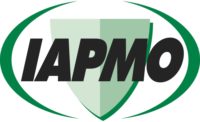High-power Energy Packages. Developments such as highly advanced batteries, inexpensive fuel cells, and micro-generators of electricity will make many electronic products and appliances highly mobile. Decentralized power sources will be extensive, affordable, and environmentally clean. These new, high-power, distributed energy systems will provide back-up if not primary energy sources for appliances, homes and vehicles. In the transition to fuel cells, there will be further improvements in batteries--perhaps linked with solar power--and small generators fueled by natural gas.
Omnipresent Computing. Computers will be everywhere. People will be in constant contact with very miniature, wireless, highly mobile, powerful and highly personalized computing with network access. Such computers may first appear on the market as watches or jewelry with the power of a computer and cellular phone. Later, computers will be embedded in clothing and possibly implanted under the skin.
Nanomachines. Microscopic machines, measured in atoms rather than millimeters, will revolutionize several industries and may perform a wide range of jobs--from heating homes to curing cancer. Battelle researchers see the medical industry as the most important area for nanomachine technology by 2020. "We may be able to develop nanomachines that will go into your body and find and destroy individual cancer cells while not harming healthy cells," Battelle Senior Research Scientist Kevin Priddy said.
Intelligent Goods and Appliances. Advances in quantum computing will lead to smaller, more powerful computers and electronics that will add amazing intelligence to appliances and other products. These products will likely include telephones with extensive phone directories, intelligent food packaging that tells an oven how to cook the food inside, refrigerators that help make out a shopping list and tell where to go to get the best price on food.
Worldwide Inexpensive and Safe Water. Within the next 20 years, clean drinking water could become an expensive commodity around the world. However, before water shortages become critical, technology will answer the challenge, with advanced filtering, processing and delivery of potable water. Desalination of water and water extraction from the air are two possibilities
Super Senses. One of the hot technologies today is virtual reality. In 20 years, though, people will be marveling over "enhanced reality." Using sensors and electronic or genetic technology, devices will be implanted that will allow people to hear better than ever before or see farther or in the dark.
Settlement Reached in Dip Tube Suit
Six major U.S. water heater manufacturers have entered into a national class action settlement related to allegedly defective dip tubes manufactured by Perfection Corp. between August 1993 and October 1996. The affected dip tubes were used in water heaters manufactured between 1993 and 1997. Dip tubes are plastic pipes that deliver cold water to the bottom of water heater tank. The manufacturers participating in the settlement are: American Water Heater Co., A.O. Smith Corp., Bradford White Corp. Lochinvar Corp., Rheem Mfg. Co. and State Industries, Inc.Under terms of the settlement, consumers can have the affected dip tube replaced at no cost, receive reimbursement for related damages and get other related repairs made. Signs of a defective dip tube include loss of hot water volume and pressure, clogged plumbing lines and fixtures, and the appearance of tiny white or gray particles in the hot water supply.
As reported in May 1999 PME, attorney Michael Gagleard, whose firm filed the class action suit, noted, "The company (Perfection Corp.) believed that the polypropylene dip tubes did not receive a particular chemical treatment and were thus subject to premature breakdown, deterioration and dissolution."
According to the settlement, the water heater manufacturers and Perfection Corp. (which chose not to be part of the settlement agreement) continue to deny liability of any kind. However, the water heater manufacturers concluded that it was desirable to enter into the settlement agreement in order to settle the claims against them and to avoid further litigation costs.
According to Alan Hilburg, a consumer and trade education specialist, the manufacturers, who purchased the affected dip tubes from an outside supplier, have embarked on an aggressive consumer and trade education intiative to make consumers and the plumbing industry aware of the remedies and reimbursement procedures.
To determine how to identify water heaters which contain the affected dip tube and to obtain relief under the settlement, call 800-329-0561 or log onto the Internet at www.diptubesettlement.com.


